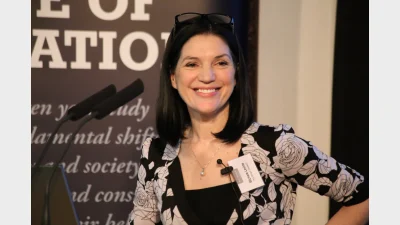Concern about default funds



 |
| Russell Clarke
|
Members of the superannuation industry have voiced concerns about suggestions that better default super funds should be built in response to a lack of member engagement.
The chief investment officer of Mercer, Russell Clarke, recently suggested default super funds that rolled members through progressively defensive investment options as they aged could be a solution to the lack of engagement by super members.
Jeremy Kruse, a senior wealth strategist at Melbourne planning practice Moneyclip, said that while he didn’t dispute the idea, he was concerned that by shifting superannuation holders in default funds into increasingly conservative investment positions as they aged, the purchasing power of their super would diminish over time.
There was a real risk that too conservative a position would not keep up with inflation and provide them with an income over a 30 to 40-year period, he said.
There was no one-size-fits-all portfolio for members, but an exposure of at least 40 per cent to 50 per cent to growth assets at retirement was a good outcome, he said.
There also needed to be sufficient liquid assets to keep delivering an income stream, Kruse said.
The managing director of Matrix Planning Solutions, Rick Di Cristoforo, told Super Review that the public needed to consider the entire financial advice spectrum rather than engaging only with super, thus creating better default super funds to fix a lack of engagement would not help address a lack of interest in their financial future as a whole.
“Just getting superannuation sorted out is too small in scope and too narrow ... engagement should be about their financial future, and that’s a much bigger, more important issue,” he said.
The managing director of Snowball Group, Tony McDonald, said that while he agreed with enhancing default funds to get better outcomes for members, for example by instituting “opt-out default fund options”, there was a risk that members would be conscripted into collective solutions without having member information readily available.
Super funds should give members the choice of opting out, but only if that did not become the “lazy way” of dealing with consumers, or lead to people giving up on engaging with members, McDonald said.
Recommended for you
Large superannuation accounts may need to find funds outside their accounts or take the extreme step of selling non-liquid assets under the proposed $3 million super tax legislation, according to new analysis from ANU.
Economists have been left scrambling to recalibrate after the Reserve Bank wrong-footed markets on Tuesday, holding the cash rate steady despite widespread expectations of a cut.
A new Roy Morgan report has found retail super funds had the largest increase in customer satisfaction in the last year, but its record-high rating still lags other super categories.
In a sharp rebuke to market expectations, the Reserve Bank held the cash rate steady at 3.85 per cent on Tuesday, defying near-unanimous forecasts of a cut and signalling a more cautious approach to further easing.











